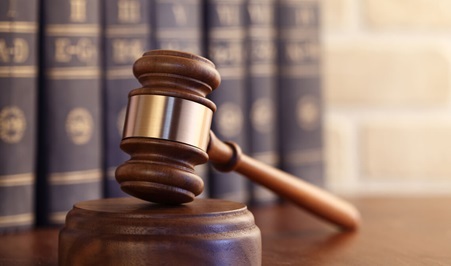Injunction application sought to halt suspension of the Chief Justice
Supreme Court dismisses injunction against CJ’s suspension

An injunction application that sought to halt the suspension of the Chief Justice, Justice Gertrude Sackey Torkornoo, by President John Dramani Mahama has failed.
In a 3-2 majority decision on Tuesday, a five-member panel of the Supreme Court presided over by the Acting Chief Justice, Justice Paul Baffoe-Bonnie, dismissed the application for interlocutory injunction filed by the Member of Parliament for Old Tafo, Vincent Ekow Assafuah.
The court did not give the reasoning behind the decision, which it said would be ready by May 21 this year.
Application
The applicant, Vincent Assafuah, wanted the court to halt the suspension of the Chief Justice pending the final determination of his writ challenging the constitutionality of the impeachment process against her.
He also sought an order from the apex court to put on hold any action that could lead to the potential impeachment of Justice Torkornoo.
By the above relief, the MP wanted the Supreme Court to halt the work of the five-member committee established by President Mahama to investigate the three petitions seeking the impeachment of the Chief Justice.
Moving the application today, Mr Dame argued that irreparable damage would be occasioned if the injunction was not granted and the court ultimately decided that the impeachment process violated the 1992 Constitution.
It was his submission that the President violated the right to hearing, an essential requirement under the 1992 Constitution, because he failed to take the response of the Chief Justice before commencing the consultation process with the Council of State on whether or not the three petitions disclosed a prima facie case.
Mr Dame said the prima facie process was a quasi-judicial process and therefore the President was enjoined by the Constitution to have afforded the Chief Justice a hearing before even commencing the consultation process with the Council of State.
He accused the President of receiving the petitions and keeping them for about six weeks before notifying the Chief Justice, which was only done after Justice Torkornoo wrote to the President complaining about the failure to obtain her response.
He urged the court to disregard the subsequent notification of the petitions by the President to the Chief Justice, describing it as an unreasonable default.
Constitutional provision
At that point, Justice Kulendi asked Mr Dame to show the court anywhere in Article 146 of the Constitution, the constitutional provision governing the impeachment process, which sets the timelines for the notification to the Chief Justice by the President.
“When must the notice be given. Is it the moment the petition is filed, is it during consultation with the Council of State or when the committee was set up? If you are able to show us, we will give you a bench ruling right now,” Justice Kulendi told the former A-G.
In response, Mr Dame argued that although the timelines were not specifically stated in Article 146 of the Constitution, the spirit of the Constitution demanded that a person facing a quasi-judicial decision, such as the determination of a prima facie case, ought to be given a hearing.
He made reference to the fact that Article 146 of the Constitution did not even mention that a prima facie determination should be made when a petition was filed against a Chief Justice, but the Supreme Court in Frank Agyei Twum vs A-G read the provision to include a prima facie determination before the committee to probe the petition was set up.
Deputy A-G’s response
In his response opposing the application, Dr Srem-Sai urged the court to dismiss the application on the ground that it had no basis in law.
The Deputy A-G argued that the said right to be heard, which was the bone of contention, had already been enjoyed by the Chief Justice after the President subsequently wrote to her to elicit her response before the determination of the prima facie case.
“As of today, the right has been given to the Chief Justice, and she has enjoyed that right,” he submitted.
He further urged the court to be circumspect in granting an injunction against another arm of government in the performance of its constitutional duty, adding that the Constitution did not specify the timelines for the notification.
Justice Mensa-Bonsu then asked the Deputy A-G whether he believed that, in the present circumstances, the stream of justice had been allowed to flow freely.
“The Constitution does not define when breakfast should be eaten, but if you eat breakfast at 4 p.m., is it breakfast?” she questioned.
Objection
Prior to the decision, the court overruled an objection by Mr Dame seeking the recusal of Justice Baffoe-Bonnie from the panel.
Mr Dame had argued that the Acting Chief Justice had a personal interest in the outcome of the case as its determination would affect his status.
However, the court unanimously overruled the objection as unmeritorious.
Background
On April 22, Spokesperson to the President and Minister of Government Communications, Felix Kwakye Ofosu, announced that President Mahama had suspended Justice Torkornoo.
The suspension of the Chief Justice by President Mahama, under Article 146 (10) of the Constitution, followed the determination of a prima facie case by the President, in consultation with the Council of State, and the subsequent establishment of a five-member committee to inquire into the petitions, in accordance with Article 146 (6) of the 1992 Constitution.
The committee established by President Mahama to probe the petitions was to be chaired by a Justice of the Supreme Court, Justice Gabriel Scott Pwamang.
Members of the committee are Justice of the Supreme Court, Justice Samuel Kwame Adibu-Asiedu; a former Auditor-General, Daniel Yaw Domelevo, Major Flora Bazwaanura of the Ghana Armed Forces, and Professor James Sefah Dzisah of the University of Ghana.



